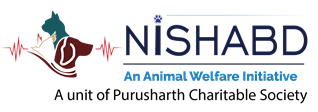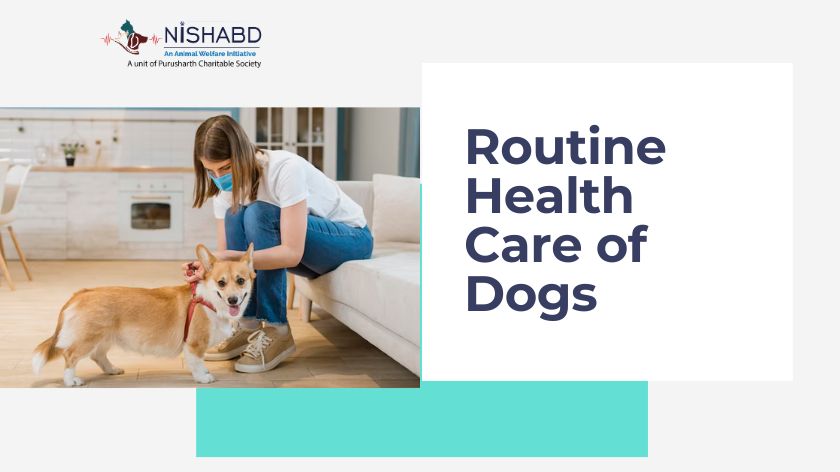Routine Health Care of Dog
Being a great dog owner takes more than love and cuddles. Regular treatment for dogs’ health care is crucial in order to ensure they live long and healthy lives as pets we love dearly.
Want to know more about dog health care and dog care tips? We’ll dive into the most important aspects of caring for the health of dogs which range from vaccinations and nutrition, to grooming and exercise.
Detailed Routine Health Care and some dog care tips are:
- Veterinary Visits:
The vet visits frequently, at least every other year. It is essential to have thorough dog health care. The vet will examine the general health of your dog and assess their weight, as well as examine their heartbeat and lungs, and assess the changes you have noticed in their behavior or physical appearance. They might recommend additional tests based on your pet’s age as well as the condition of their health. It is one of the most essential dog care tips. - Vaccinations:
The vaccines protect pets from deadly and infectious diseases that can be fatal. The most essential vaccinations are rabies distemper, parvovirus as well as Adenovirus. Other vaccinations are suggested in light of your dog’s behavior and risk elements in place, like the possibility of kennel-cough for dogs that are regularly exposed to dogs of other breeds. - Nutritious Diet:
Be sure that your pet gets nutritious food that has been specifically designed to meet the requirements of your pet. Choose a premium pet food brand or talk to your veterinarian for a diet that is individualized. Be sure your pet has access to water that is clean throughout the day. Do not feed your pets anything which could pose a risk such as grapes, garlic, onions or even chocolate. - Exercise and Mental Stimulation:
Dogs benefit from physical exercise and it stimulates their brains.Give them daily walks with playtime, as well as exciting toys that keep them entertained and engaged. Regular exercise helps keep your pet at an appropriate weight, and also prevents any boredom-related behaviors and improves your bond with your pet. - Grooming:
A regular grooming session is essential to your dog’s grooming as well as overall well-being. Make sure to clean their coats often to remove dirt, dust and the loose hair. Cut nails to prevent the growing of their nails that can create uncomfortableness. Make sure to clean their ears regularly to keep them from getting infections. Finally, regularly brush their teeth to maintain their oral well-being and to avoid any dental ailments. - Parasite Prevention:
Use veterinarian-recommended flea and tick preventives to protect your dog from parasites. Apply deworming treatments as prescribed to avoid intestinal worms. Check your dog’s skin and fur to look for signs of parasites. Contact your veterinarian if you find anything that is odd. - Spaying and Neutering:
Consider getting the spaying of your animal (for females) and also the process of neutering (for males) your pet in case you intend to breed responsibly. This technique will help you prevent unwanted litter and offer dog health care benefits like lessening the chance of contracting certain illnesses, like urinary tract infections and aggressive behavior.
Signs of Illness in Dogs
It is vital for you to know indicators that might suggest that your dog’s overall health isn’t as great as it ought to be. Being aware of these warning signs quickly will help you locate the appropriate veterinary treatment quickly, and will ensure that your dog receives promptly care and support. It is very important that you keep a check on your dog’s health care.
- Change in the appetite: Stay aware of unexpected changes the way your dog’s diet is changing. It could be that he’s not wanting to take food or eating less or having more meals than usual.
- Diarrhea and vomiting: Occasionally diarrhea or vomiting might not be the cause for anxiety, however frequent episodes could be a sign of more serious issues, like an infection, a dietary issue or digestive problems.
- Lethargy: If your pet appears tired or has a lack of energy it could be an indication of a medical issue. The dogs are typically active and lively and any sign of exhaustion or inability to take part in the things they enjoy warrants attention.
- Urogyn Asm-related issues: Finding it difficult to urinate, frequent urinary frequency, or changes in the color of urine or the smell could suggest urinary tract issues, urinary stones or other issues.
- Coughing or breathing difficulty: The constant wheezing, coughing or difficulty breathing could be an indication of allergies or respiratory infections, as well as heart issues.
- Visual signs: Look for signs that are obvious. For example, joints that are achy, swelling as well as injuries. They may be an indication of joint injury, pain or injuries and infections that require medical attention.
- Changes in Behavior: Severe behavioral changes, including rage, anxiety, or even heavy breathing, may be a sign of pain or discomfort.
You should speak with your veterinarian if you observe any of these symptoms in your dog, or if they exhibit any other unusual behavior. Your dog’s general health can be ensured and its health can be maintained with an early diagnosis and prompt treatment.
Visiting your veterinarian on a regular basis is essential for evaluating your dog’s general health and identifying potential problems before they become more serious.
FAQs on Routine Health Care for Dogs
Q1. What is the suggested time to bring your dog’s vet for routine check-ups?
The standard is that all dogs need to undergo an annual check-up. Dogs who are older, puppies or those with specific health issues may require regular visits to the veterinarian.
Q2. What vaccinations does my dog need?
The most important vaccinations are those that cover rabies distemper and parvovirus as well as Adenovirus. Some other vaccinations that are not essential may be recommended considering your dog’s routine and risk factors.
Q3. How can I determine whether your dog’s weight is excessive or weighs too much?
You should be able to feel your pet’s ribs and there is no fat that is piled up over your ribs. Ask your veterinarian for a thorough assessment and the most effective weight-management program.
Conclusion
The regularity of veterinary care is crucial to ensure your dog’s wellbeing and longevity. By offering regular visits to the vet and vaccinations, providing nutritious nutrition, grooming, exercise, as in addition to parasite prevention, and considering spaying and neutering in order to provide your dog with the best chance to lead a healthy and active existence.
Keep in your mind that your vet is your trusted advisor in keeping your dog’s health in general. Therefore don’t be afraid to seek advice from them for specific care specifically tailored to your dog’s specific needs. If you take the time to take care of your dog, and take care of it, your dog will flourish as a trusted pet for many years to come.

